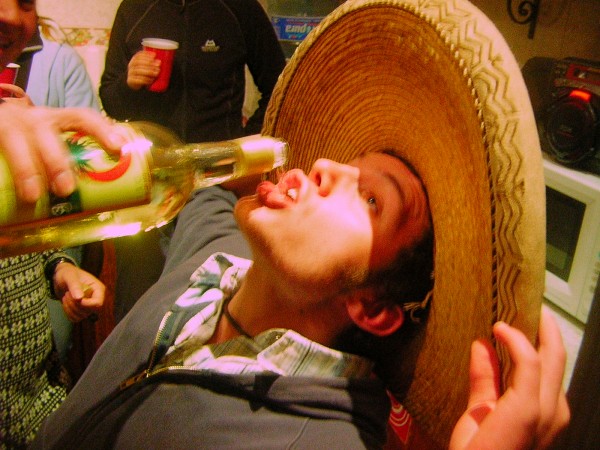We’ve all heard the folk wisdom about how different kinds of alcohol affect us differently.
“I go crazy on tequila,” one person claims. “He’s okay drinking beer, but he’s a mean whiskey drunk,” is an oft-heard refrain. “If I drink gin, I turn into a big, maudlin crybaby,” someone asserts.
But is it true? Does the kind of alcohol we drink influence the kind of buzz we get? The science doesn’t seem to support the folk wisdom.
First off, booze is booze. Whether you’re drinking beer, wine or hard liquor, the active ingredient—the stuff that gets you drunk—in each beverage is the same: ethyl alcohol or ethanol. Yes, hard liquor contains more ethanol per ounce than beer or wine, but it’s the amount of ethanol consumed, not the vehicle for consuming it, that makes the difference.
We recognize that different kinds of alcoholic beverages are of varying strengths—drinking 12 ounces of 80 proof (40%) hard liquor will get you much more intoxicated than 12 ounces of 5% alcohol beer—but we can account for those differences by using the standard drink rule set by the National Institutes of Health. That rule posits that although alcohol by volume varies by beverage we can assume that a 12-ounce beer equals a 5-ounce glass of wine equals 1.5-ounce shot of hard liquor. They all have about the same amount of pure alcohol and they should all affect drinkers similarly.
more on alternet.org




